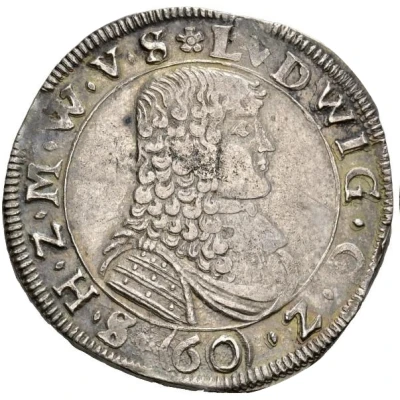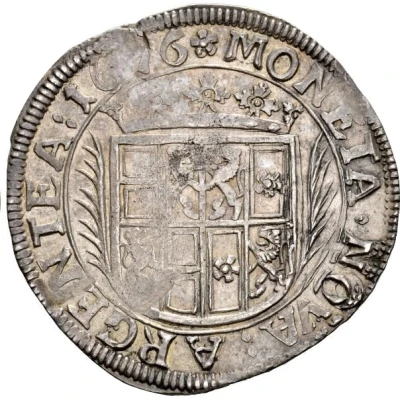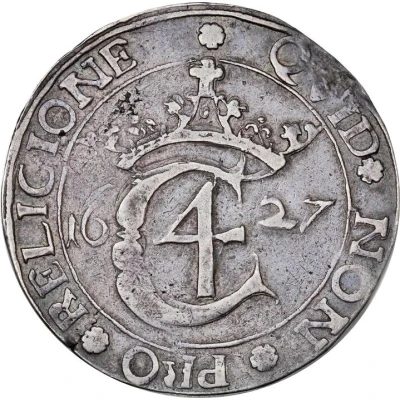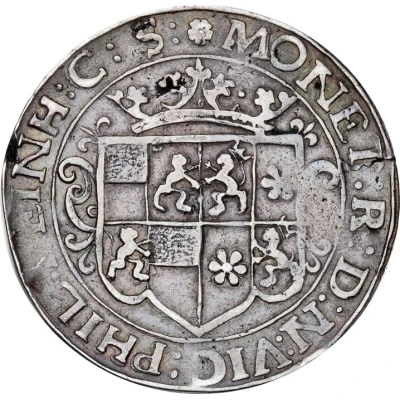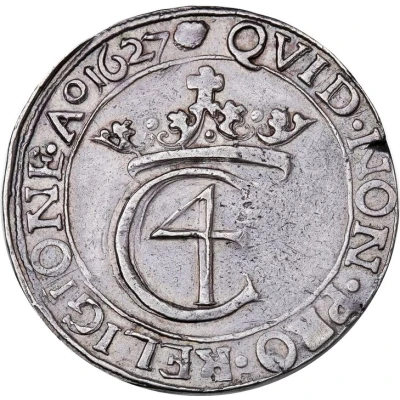
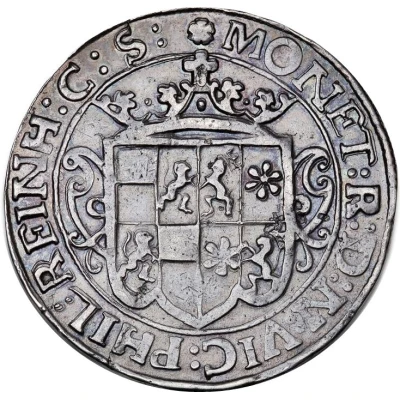

© Bruun Rasmussen Kunstauktioner
1 Thaler - Philip Reinhard I Hahnrei-Taler; type
1627 year| Silver (.888) | 28.71 g | - |
| Issuer | County of Solms-Hohensolms (German States) |
|---|---|
| Count | Philip Reinhard (Philipp Reinhard) (1613-1635) |
| Type | Standard circulation coin |
| Year | 1627 |
| Value | 1 Thaler |
| Currency | Thaler |
| Composition | Silver (.888) |
| Weight | 28.71 g |
| Shape | Round |
| Demonetized | Yes |
| Updated | 2024-10-05 |
| Numista | N#295125 |
|---|---|
| Rarity index | 100% |
Reverse
Crowned large shield of 8-fold arms. Shield is poorly decorated, only with handle-shaped lateral elements and is within a circle with legend outside.
Script: Latin
Lettering: MONET:R:D:N:VIC:PHIL:REINH:C:S: ✿
Comment
This rather interesting issue recounts the power struggle that ensued in the Duchy of Brunswick-Wolfenbuttel during the Thirty Years' War. Duke Friedrich Ulrich was directly related to the King of Denmark, Christian IV, through his mother (the king's sister) and, on account of the duke's alcoholism, the Danish royal family stepped in to see to the administration of the duchy. Philipp Reinhard I, Count of Solms-Hohensolms, was brought in to act as Christian's governor (vicar) in place of Friedrich Ulrich. While in his role as governor, Philipp indulged himself with silver owned by the duke, as well as silver from around Wolfenbuttel, using the looted booty to strike talers (such as the present specimen) for Philipp's County of Solms-Hohensolms--even utilizing the local mint at Wolfenbuttel in this exploit. As such, the resulting coinage became known locally as a Hahnreitaler ("cuckold-taler"), as the infidelity of the governor had betrayed the former power of the duke.Interesting fact
One interesting fact about this coin is that it features an image of a hare on the reverse side, which is where the name "Hahnrei-Taler" (Hare-Thaler) comes from. This design was meant to symbolize the Count's reputation for being quick and nimble, like a hare.
